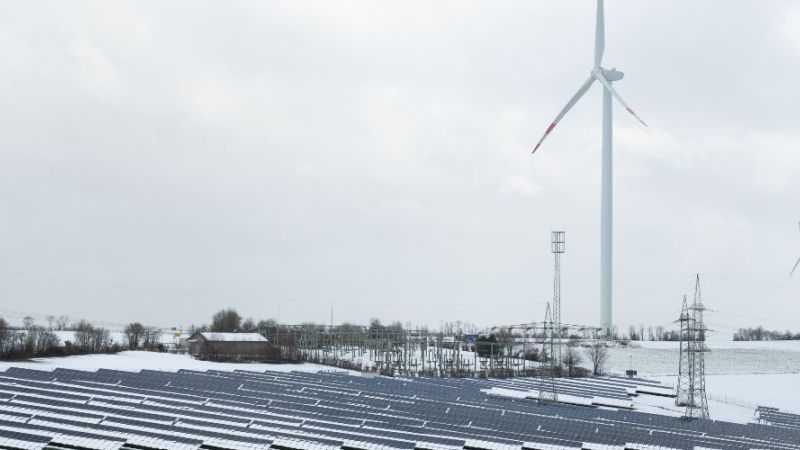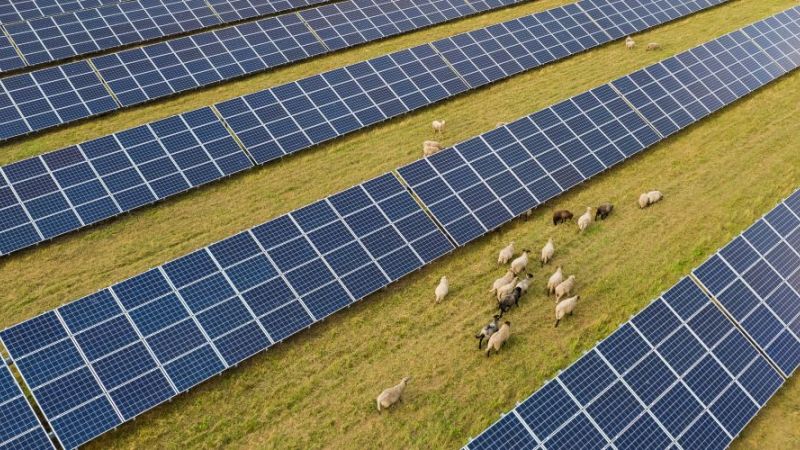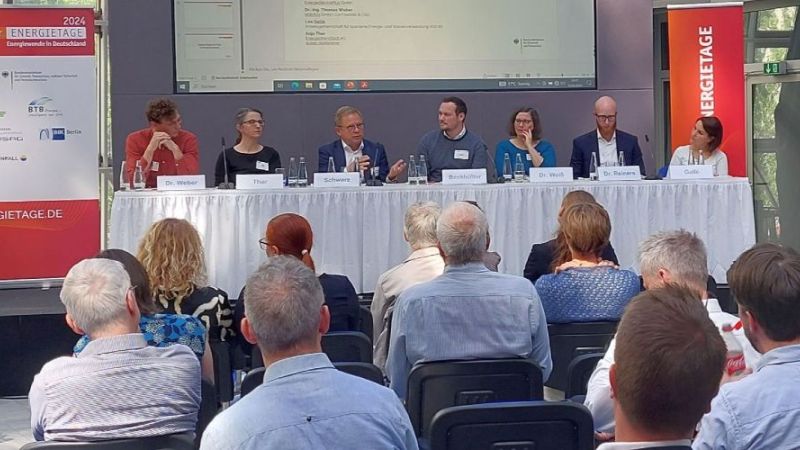 © Peter Jurik – stock.adobe.com
© Peter Jurik – stock.adobe.com
Photovoltaics
Darkness during the day - Why photovoltaic researchers are concerned with solar eclipses
Power from photovoltaic systems is becoming increasingly important for the energy transition. Integrating it into the power grid as efficiently as possible is not just a matter of technical and economic aspects. Meteorological and astronomical events - such as solar eclipses - must also be taken into account.
On 25 October, a rare natural spectacle could be observed in Germany: a solar eclipse. At midday, the moon’s orbit passed between the earth and the sun, covering a small part of the sun’s visible disc. This was therefore not a total solar eclipse, but a partial one. This cosmic event is not only fascinating to observe, but also of interest to a wide range of scientific fields, such as photovoltaic research.
Predictions are important for reliable electricity generation
The share of solar power is steadily increasing and must flow safely into the power grid. Fluctuations in electricity generation are naturally caused by day and night times or changing weather conditions, as well as exceptional meteorological events such as a solar eclipse. In order to feed the variable electrical energy smoothly into the grid, it is important to make predictions that specify the expected solar irradiation as precisely as possible. This allows experts on the energy market and the network operators to prepare themselves accordingly with reliable forecast data.
It is precisely such forecasts of expected photovoltaic output that researchers are working on in the SOLREV joint project. The team of scientists around the Fraunhofer Institute for Solar Energy Systems ISE is researching models with project partners that provide data and forecasts on solar irradiation. For instance, they use satellite data to reliably predict cloud development for the next few hours. The aim is to be able to estimate solar power production as accurately as possible in advance and to provide additional information on forecast uncertainty.
Extreme events influence solar power production
Meteorologically exceptional events occur relatively infrequently, but when they do, they pose particular challenges for those who operate power grids and provide forecasts. For photovoltaics, such extreme events include for instance Sahara dust, volcanic ash or solar eclipses.
For example, while a solar eclipse is happening, the photovoltaic infeed from solar energy plants in the shaded area can be significantly reduced. The changed infeed occurs over large areas at the same time in a very short time. This means that - depending on the type and duration of the eclipse - it may have a significant impact on the total output fed into the grid in Germany. The effect of a solar eclipse is therefore particularly significant for regionally aggregated forecasts and thus relevant for forecast models.
Weather forecasts have so far not routinely covered such extreme events. Researchers at the Fraunhofer Institute for Energy Economics and Energy System Technology IEE have therefore developed a method to reduce forecast errors for solar eclipses.
Method combines shading data with weather forecast models
The team of scientists can use the method they developed to combine the cloud coverage with weather forecast models in a location- and time-specific manner. The resulting data help to improve the forecasts for regional and local photovoltaic infeed. Future solar eclipses will steadily expand the data pool. On this basis, the scientists can further optimise their method and thus better prepare the energy systems for extreme events.
The last total solar eclipse to date was observed in Germany on 11 August 1999. Since then, there have been several partial solar eclipses, with the next one taking place in April 2023. It will take until 3 September 2081 before the moon completely eclipses the sun and another total solar eclipse can once again be observed in Germany. Photovoltaic research is also already looking at these data. (av)










